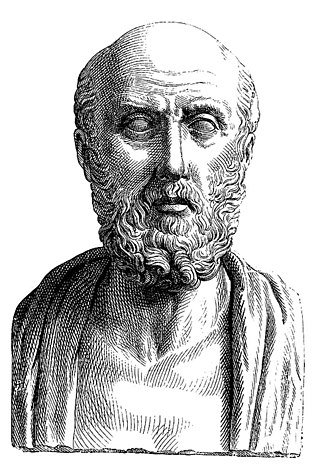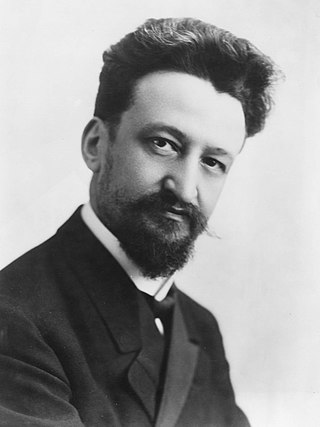
John Milton Scudder was a 19th-century physician and practitioner of eclectic medicine. He was born September 8, 1829, in Ohio and died February 17, 1894. He was a Swedenborgian by faith.

John Milton Scudder was a 19th-century physician and practitioner of eclectic medicine. He was born September 8, 1829, in Ohio and died February 17, 1894. He was a Swedenborgian by faith.
Scudder came to medicine late in life after losing three children to medical care he deemed improper. He enrolled in the Eclectic Medical Institute at Cincinnati, and in 1856 graduated with honor as valedictorian, and was hired as a professor. He soon rose to prominence as an author, a professor and a medical innovator.
Scudder's life and work was examined in a 1912 biography by eclectic physician Harvey Wickes Felter, who wrote:
"...whatever else [Dr. Scudder] accomplished — his work in putting the college on a firm and progressive basis, the preparation of text-books and the rehabilitation of the Journal — it must stand forever that his great work in life was the formulation and introduction of the principles and practice of Specific Medication... now universally adopted and practiced by all progressive Eclectics." [1]

Veterinary medicine is the branch of medicine that deals with the prevention, management, diagnosis, and treatment of disease, disorder, and injury in animals. Along with this, it deals with animal rearing, husbandry, breeding, research on nutrition, and product development. The scope of veterinary medicine is wide, covering all animal species, both domesticated and wild, with a wide range of conditions that can affect different species.

James Tyler Kent (1849–1916) was an American physician best remembered as a forefather of modern homeopathy. In 1897 Kent published a massive guidebook on human physical and mental disease symptoms and their associated pseudoscientific homeopathic preparations entitled Repertory of the Homeopathic Materia Medica, which has been translated into a number of languages. It has been the blueprint to many modern repertories used throughout the world and even remains in use by some homeopathic practitioners today.

William Cullen FRS FRSE FRCPE FPSG was a Scottish physician, chemist and agriculturalist, and professor at the Edinburgh Medical School. Cullen was a central figure in the Scottish Enlightenment: He was David Hume's physician, and was friends with Joseph Black, Henry Home, Adam Ferguson, John Millar, and Adam Smith, among others.

The Hippocratic Corpus, or Hippocratic Collection, is a collection of around 60 early Ancient Greek medical works strongly associated with the physician Hippocrates and his teachings. The Hippocratic Corpus covers many diverse aspects of medicine, from Hippocrates' medical theories to what he devised to be ethical means of medical practice, to addressing various illnesses. Even though it is considered a singular corpus that represents Hippocratic medicine, they vary in content, age, style, methods, and views practiced; therefore, authorship is largely unknown. Hippocrates began Western society's development of medicine, through a delicate blending of the art of healing and scientific observations. What Hippocrates was sharing from within his collection of works was not only how to identify symptoms of disease and proper diagnostic practices, but more essentially, he was alluding to his personable form of art, "The art of true living and the art of fine medicine combined." The Hippocratic Corpus became the foundation upon which Western medical practice was built.

Samuel Thomson was a self-taught American herbalist and botanist, best known as the founder of the alternative system of medicine known as "Thomsonian Medicine", which enjoyed wide popularity in the United States during the 19th century.
King's American Dispensatory is a book first published in 1854 that covers the uses of herbs used in American medical practice, especially by those involved in eclectic medicine, which was the botanical school of medicine in the 19th to 20th centuries. In 1880 John Uri Lloyd, an eclectic pharmacist of the late 19th and early 20th centuries, promised his friend, professor John King, to revise the pharmaceutical and chemical sections of the American Dispensatory. Eighteen years later an entirely rewritten eighteenth edition was published in 1898. It was co-authored by eclectic physician Harvey Wickes Felter

Bernard Fantus was a Hungarian Jewish-American physician. He established the first hospital blood bank in the United States in 1937 at Cook County Hospital, Chicago while he served there as director of the pharmacology and therapeutics department.

Roberts Bartholow or Robert Bartholow was an American physician and a professor at several American medical colleges. He is best known for his experiments involving a 30-year-old patient named Mary Rafferty. Rafferty was admitted to Good Samaritan Hospital in Cincinnati, Ohio in 1874 with a 2-inch-diameter (51 mm) hole in her skull caused by a cancerous ulcer. Bartholow experimented with applying current to Rafferty's exposed dura using needle electrodes. His report detailed the first observations of how electrical stimulation of the brain affects motor functions of the body, but many ethical concerns were raised about the way in which he carried out his experiments. Rafferty went into a coma for three days and then died the day after coming out of the coma from a massive seizure.

Daniel Drake was a pioneering American physician and prolific writer.

Harvey Wickes Felter (1865–1927) was an eclectic medicine doctor and author of Eclectic Materia Medica. He was co-author, with John Uri Lloyd, of King's American Dispensatory.
Eclectic Materia Medica is a materia medica written by the eclectic medicine doctor Harvey Wickes Felter. This was the last, articulate, but in the end, futile attempt to stem the tide of Standard Practice Medicine, the antithesis of the model of the rural primary care "vitalist" physician that was the basis for Eclectic medicine. The herbal portions of the Materia Medica can be found at the websites below, but the book also contained alkaloids, salts, chemicals, injected compounds and other products well-outside of the herbal realm.

Finley Ellingwood was a doctor of eclectic medicine who is the author of the influential American Materia Medica, therapeutics, and pharmacognosy in 1919. Ellingwood was an active Chicago physician with many years experience, and an acknowledged expert in obstetrical/gynecological medicine. He was a vocal advocate of women physicians, and edited Ellingwood's Therapeutist for many years. His brand of Eclectic Medicine differed from the more subdued Cincinnati style as mentored by Scudder, Lloyd, Fyfe, and Felter.
Eclectic medicine was a branch of American medicine that made use of botanical remedies along with other substances and physical therapy practices, popular in the latter half of the 19th and first half of the 20th centuries.

Sir John Russell Reynolds, 1st Baronet was a British neurologist and physician.

Walter Hayle Walshe (1812–1892) was an Irish physician, a pioneer in the study of cancer with his discovery that malignant cells can be recognised under a microscope.

Sir Thomas McCall Anderson was a physician and a professor of practice of medicine, at the University of Glasgow.
Edward Constant Séguin, MD was an American neurologist and a founder of the American Neurological Association in 1875. He was a practitioner and professor at the College of Physicians and Surgeons in New York.

Alexander Gordon MA, MD was a Scottish obstetrician best known for clearly demonstrating the contagious nature of puerperal sepsis. By systematically recording details of all visits to women with the condition, he concluded that it was spread from patient to patient by the attending midwife or doctor, and he published these findings in his 1795 paper "Treatise on the Epidemic Puerperal Fever of Aberdeen". On the basis of these conclusions, he advised that the spread could be limited by fumigation of the clothing and burning of the bed linen used by women with the condition and by cleanliness of her medical and midwife attendants. He also recognised a connection between puerperal fever and erysipelas, a skin infection later shown to be caused by the bacterium Streptococcus pyogenes, the same organism that causes puerperal fever. His paper gave insights into the contagious nature of puerperal sepsis around half a century before the better-known publications of Ignaz Semmelweis and Oliver Wendell Holmes and some eighty years before the role of bacteria as infecting agents was clearly understood. Gordon's textbook The Practice of Physik gives valuable insights into medical practice in the later years of the Enlightenment. He advised that clinical decisions be based on personal observations and experience rather than ancient aphorisms.
John Mitchell Bruce (1846–1929) was a British physician, pathologist, and physiologist.

Isaac Jennings was an American physician and writer who pioneered orthopathy.